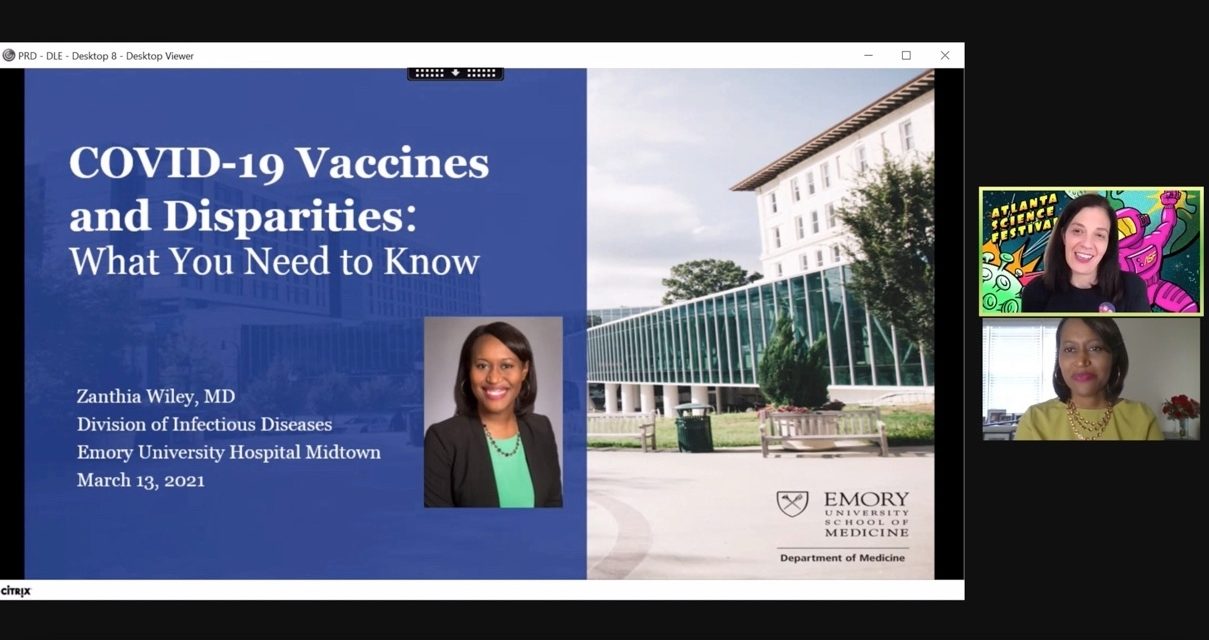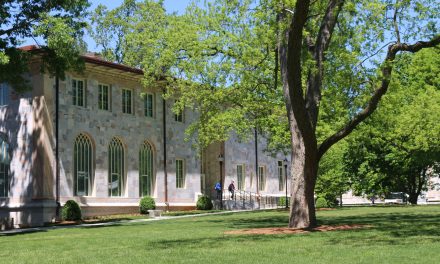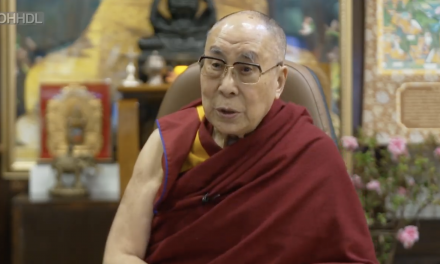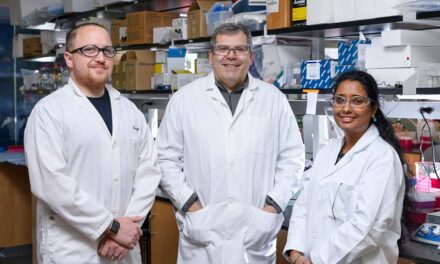Opening the ninth annual Atlanta Science Festival, Assistant Professor of Infectious Diseases at the Emory School of Medicine Zanthia Wiley discussed health care inequalities in minority communities and the COVID-19 vaccine on March 13.
“What I realized early on was that my first COVID patient was Black, my second COVID patient was Black, my third COVID patient was Black,” Wiley said. “So it did not take me very long to realize this is disproportionately affecting people who look just like me.”
The Emory-sponsored event is part of the festival’s two-week program “dedicated to bringing people together through the wonder of science,” according to the festival’s website. A second event focusing on health disparities in Latinx communities will occur on March 16.
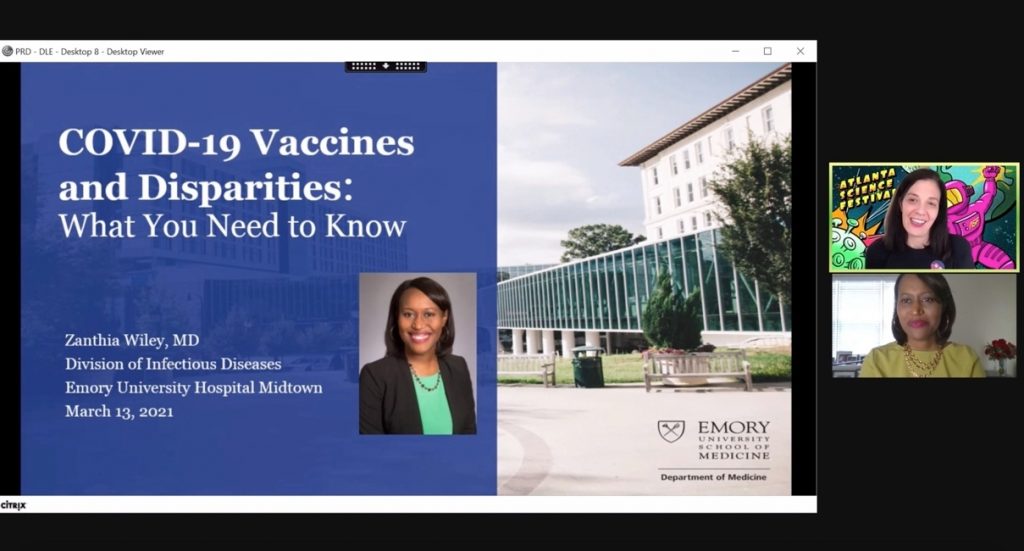
Assistant Professor of Infectious Diseases at the Emory School of Medicine Zanthia Wiley speaks virtually about COVID-19 vaccines and disparities in Black communities at the Atlanta Science Festival on March 13.
Wiley told the 32 attendees that the pandemic has acutely affected minority communities, as individuals from Black or Hispanic communities are “2.9 or 3.2 times more likely to be hospitalized” for COVID-19 than white, non-Hispanic individuals.
“We have to be really upfront and say that this is because of long-standing systemic health and social inequities,” Wiley said. “We have to say it, it’s OK to say it, this is what it is.”
Wiley also noted that individuals from Black and minority communities are less likely to have access to COVID-19 testing services but are more likely to live in high density and high pollution-exposure environments. These individuals may have pre-existing illnesses “such as high blood pressure, diabetes and asthma” and are more likely to be essential workers.
“This is why it’s extraordinarily important that everyone receives vaccines, but we really need the Black community to know why it’s so important for us to receive the vaccine as well,” Wiley said.
To address the controversy and misinformation regarding the COVID-19 vaccine, Wiley noted that each FDA approved vaccine on the market — Moderna, Pfizer-BioNTech and Johnson & Johnson — prevents COVID-19 deaths and hospitalizations “extraordinarily well” and that there were no deaths or hospitalizations among participants who received the vaccine during the clinical trials.
All three vaccines instruct the human body to create spike proteins, the external portion of the COVID-19 virus, which readily attaches to human cells to cause the disease. Although harmless without the rest of the components that make up the COVID-19 virus, the spike protein “fools” the human body into producing antibodies to resist the virus into developing immunity.
Wiley noted that although data for the recently authorized Johnson & Johnson vaccine showed an efficacy rate of 67% in preventing COVID-19, the vaccines are incomparable. The “key,” she noted, was that “in these trials who received this vaccine, there were zero deaths and zero hospitalizations.”
Regarding adverse vaccine side effects, Wiley said that reactions such as sore arms, fatigues and mild fevers indicate that the “immune system is working.”
The only instances in which somebody should not take the vaccine is if an individual is severely allergic to polysorbate and polyethylene glycol, or if the individual is “actively showing symptoms of COVID-19,” Wiley explained.
“I don’t know any of my patients, or anyone I’ve taken care of, who fall into this category where they cannot take the vaccine,” Wiley said. “So essentially, almost everyone is eligible.”
Wiley also noted that cost will not be a barrier to getting a vaccination.
Most public health departments and mass vaccination sites offer vaccines at no cost. If charged an administration service fee, patients without insurance can file for reimbursement coverage through the Health Resources and Services Administration’s Provider Relief Fund.
Patients with insurance can speak to their public or private insurance company for further reimbursement guidance.
Wiley concluded the event with a reminder that there is still hope amid the carnage.
The Centers for Disease Control and Prevention issued a press release March 8 indicating that fully vaccinated individuals can not only visit other vaccinated individuals inside without masks and social distancing but can also visit unvaccinated, low-risk individuals from a single household. Wiley shared the guidelines with excitement as she spoke about her own family.
“When I go back to Alabama and visit [my family], we can sit down and break bread and laugh and talk with each other,” Wiley said. “I can kiss them on their cheek. I can’t tell you how much that means to me.”

